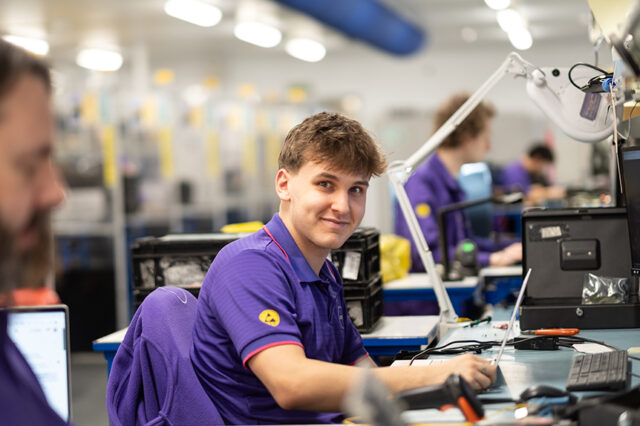April 22, 2025
UK workers reveal poor A/V communications holding them back

From poorly-timed bandwidth drops to the curse of meeting fails or individual drop outs, all digital and knowledge workers are feel the pain of poor communications during a meeting. But, we can’t always blame the network or app for a poor employee experience, and Jabra’s new research reveals that UK workers miss out as a result of being misunderstood during work meetings.
The findings from Jabra, based on a survey of survey of 2,000 UK-based knowledge workers, focus on the impact of poor audio and visual equipment, and not us tuning out of meetings or going selectively deaf as we get older. They drag down productivity and workplace satisfaction of remote workers.
A quarter (25%) of Brits in the workplace feel misunderstood when using communication tools. An issue that costs them more than just time. With 80% of meetings now including at least one virtual participant, clear conversations are critical. Yet, companies can struggle to keep pace, especially with hybrid workers, and employees feel let down by their tools.
Over a third (35%) of UK knowledge workers say weak audio or video quality is the biggest cause of misunderstanding when using communication tools, making working life harder. This is even more than the 33% who noted chaotic conversations with multiple people speaking at once a detrimental force.
“Too many UK workers are still held back by poor-quality audio and video. Spending valuable time clarifying conversations, second-guessing what was said, or worse, missing key details altogether,” said Nigel Dunn, vice president & managing director, EMEA North at Jabra. “Misunderstandings caused by unclear speech, people talking over each other, or glitchy connections don’t just derail meetings. They chip away at confidence, strain working relationships, and can even lead to individual’s stalling in their careers. It’s what we call “muted potential” in action.”
The human cost of misunderstanding communications
Miscommunication in the workplace has a real human cost. 25% of workers feel like they are let down and misunderstood by their communication tools. And 24% say they spend extra time clarifying their point and 18% admit to missing important details and deadlines. This can have a knock-on effect causing 22% to feel embarrassed or lose confidence amongst their peers.
For individual workers, misunderstandings can negatively affect their perception at work, subsequently impacting career progression and professional relationships. Some 13% say poor communication is causing a strain on their professional relationships with colleagues. And 14% believe this is holding them back in their careers causing them to miss out on professional opportunities (14%).
Addressing the “trustworthy AI” elephant in the room
Despite AI tools becoming more prevalent in the workplace, providing the ability to delegate everyday tasks such as meeting transcription, there is an underlying wariness amongst UK workers.
That’s not a surprise when AI transcriptions can turn foreign names or product jargon into nonsense words that distract and disrupt during a conversation. The overwhelming majority (93%) of British workers still trust people more than using AI tool. And(55%) of British workers trust human-sourced information more than AI generated content.
“Many people still place more trust in human communication than AI despite its potential to boost productivity,” said Dunn. “But to truly benefit, we need to start with the basics and enable employees to communicate clearly with total confidence that they are heard accurately, whether speaking to a colleague, a virtual assistant or relying on transcription tools.”
While turning the audio up is okay when working at home. In an office environment, a good meeting room setup, or a high-fidelity set of headphones on your desk are key. They offer more reliable solutions than praying for the meeting for the end or the network to stop glitching.



